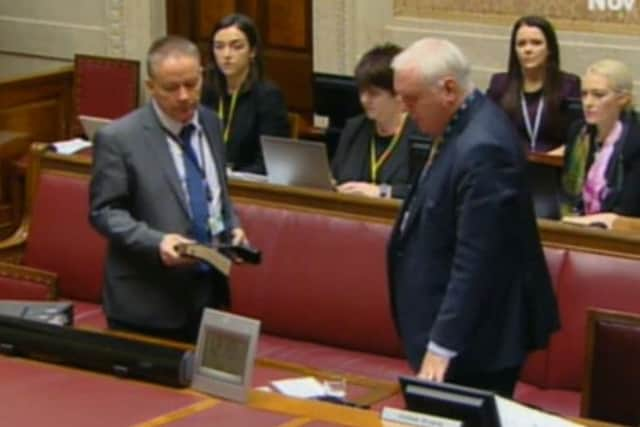Civil servant: RHIshows need for'˜systemic' change


Mike Brennan, who spent four years as the public spending director in Stormont’s Department of Finance and is now a senior figure in the Department for the Economy, made the comment as he gave evidence to the public inquiry into the disastrous green energy scheme.
One part of the inquiry’s work is examining the actions or inaction of politicians – mostly DUP ministers and special advisers, at least one of whom has admitted that they tried to delay the introduction of cost controls on the scheme.
Advertisement
Hide AdAdvertisement
Hide AdBut another aspect of its work is looking at a multitude of failures by civil servants and by the civil service as an institution.


The inquiry has already heard evidence of a basic lack of communication between Stormont departments, to the extent that one department was actively promoting the out-of-control scheme at the point when another department was desperately attempting to rein it in.
It has also heard evidence of miscommunication within Stormont departments and between Stormont and the Treasury in London.
Yesterday Mr Brennan was questioned in detail about the financial processes which lay behind the RHI scheme.
Advertisement
Hide AdAdvertisement
Hide AdAt the end of yesterday’s hearing, he was asked by panel member Dame Una O’Brien about what, in terms of his view as a finance official, needed to change in the light of how the RHI scheme was handled in order to prevent it happening again.


Mr Brennan said there was a need to revise the way in which finance divisions in Stomont departments understand updates to the consolidated budgeting guidance.
He also said that a new Stormont Executive – “or a new administration”, potentially a reference to the likelihood of impending direct rule if devolution cannot be restored – needs to look at the way in which responsibilities are delegated out and the accountability arrangements for civil servants.
He said that he expected the inquiry to make many recommendations in areas such as project management, risk accountability and elsewhere.
Advertisement
Hide AdAdvertisement
Hide AdDame Una put it to him: “But you’re suggesting that changes need to be systemic as opposed to specific? You’re very clear about that?”
Mr Brennan said: “Oh yeah. Definitely.”
Earlier yesterday another finance official, Bernie Brankin who worked in the finance division of the Department for Enterprise, Trade and Investment (DETI), the department which ran the RHI programme, said that before the scheme was launched in 2012 she had advised colleagues that they should treat the RHI funding stream from London as essentially money from DETI’s own budget.
However, this message ultimately became lost within the department to the point where the funding stream was at one point likened to “free money” by one official because they erroneously believed that London would keep paying the bill, regardless of the overspend,
She referred to an email from Treasury in 2011 – the year before the scheme began – where the department was warned that although the money was classified as ‘Annually Managed Expenditure (AME)’, which is demand-led and does not come out of Stormont’s budget, it was a different form of AME and there could be penalties if the department overspent.
Advertisement
Hide AdAdvertisement
Hide AdMs Brankin, who is now retired, said that she had forwarded that email message on to other officials and had spoken in person to Alison Clydesdale, who at that point was dealing with the scheme but subsequently moved, to impress upon them the importance of the message.
Explaining her decision to speak to Ms Clydesdale in person as well as sending the email, she said: “I saw this as significant and saw it as significant that the person who received the email understood it.”
The inquiry will continue hearing evidence today.